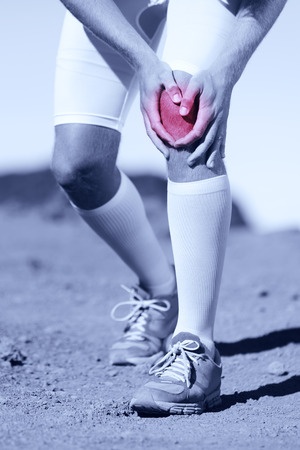The drug that gets prescribe the most for knee pain is acetaminophen. Yet, according to the latest research, it may not help at all. A new study that looked at what worked to treat arthritis pain in the knee had some startling results.
The study found that the most common treatments used might not work nearly as much as previously expected. Even a placebo injection was able to provide the same pain relief as the pill did. These findings go completely against what the majority of physicians believe, although it seems the results weren’t all that big of a surprise to expert, knee surgeons, who are aware of how pain relief can vary a great deal between patients.
According to the study, all of the treatments with the exception of acetaminophen showed significant improvement from the baseline pain.
The study was done at Tufts Medical Center, Boston area, by Dr. Raveendhara Bannuru and his colleagues who examined thousands of studies on a variety of treatments for knee pain, including acetaminophen, Tylenol’s active ingredient to steroid injections to ibuprofen.
Discovering the truth is a bit tricky since there is no motivation for the drug companies to test over the counter generic drugs like naproxen nor is there much motivation to test steroid injections against generic injections like hyaluronic acid, which is a joint lubricant.
The team found 137 studies that involved 33,000 individuals who met the high standards. The doctors did not know what treatments the patients had received as they evaluated range of motion, stiffness and pain. Most compared treatment to a placebo.
The results were surprising for the researchers. They reported and published in the Annals of Internal Medicine that what they found was that all of the treatments with the exception of acetaminophen showed significant improvement from baseline pain. They also discovered that Celebrex (celocoxib) a prescription drug that was believed to be highly effective in treating arthritis pain was no better than acetaminophen.
Even more surprising would be that a placebo injection of salt water worked better than any of the pills, but not better than steroid injections or steroid lubricants. This could be because of a super placebo effect or it might be that any fluid injected into the knee provides temporary relief (this is called viscosupplementation).
This is a huge issue for many people and it involves huge amounts of money. In fact, by 2017 the global viscosupplementation is estimated to reach $2.5 billion and by 2020 the Glucosamine market is estimated to reach $12 billion. With more than 40% of the population in the USA over 45 with some form of osteoarthritis. There is a 14% risk of lifetime knee arthritis.
The researchers didn’t look at those treatments that were considered alternative such as Glucosamine and chondroitin sulfate. The American Board of Internal Medicine says that these alternative treatments don’t work. But these therapies are still sought after by patients dealing with arthritis and knee pain.
It seems when something is injected into the knee it will improve for about 4 weeks no matter what is injected. The study shows it’s hard to tell which treatments actually work the best for knee pain, as it is very subjective.
Dartmouth Medical School orthopedic surgeon Dr. David Jevsevar says it’s difficult to judge knee arthritis pain because it comes and goes. Typically, they won’t have pain every day. There will be good and bad days. Even if nothing is done 60% of the patients will have a reduction in their knee pain.
Jevsevar recommends going slowly and using the least invasive, cheapest treatment first. That is often as simple as weight loss. Exercise can also be helpful, as long as it is the right kind that does not put strain on the knee.
Over-the-counter treatments, like acetaminophen, is the next treatment for many people. These are non-toxic do not cause stomach bleeding when taken in the prescribed dosages. Whereas aspirin and ibuprofen can cause stomach bleeding. Next is steroid injections, but only if pain pills don’t work. Surgery should be the last resort.
One study found that surgery isn’t any better than physical therapy or medication to relieve knee pain and stiffness.












After a while, your knees will probably give out. My aunt has had knee replacement surgery. Did wonders for her.
My knees have been killing me lately. Never thought to take something as simple as Tylenol to help. Will normal aspirin do the trick too?